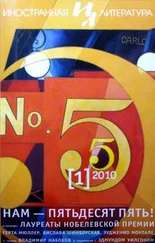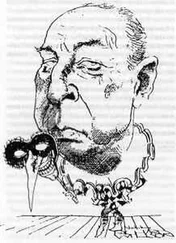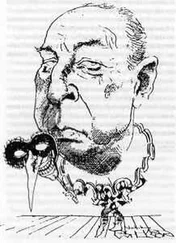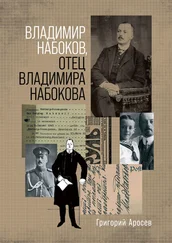Владимир Набоков - Vladimir Nabokov Pnin
Здесь есть возможность читать онлайн «Владимир Набоков - Vladimir Nabokov Pnin» весь текст электронной книги совершенно бесплатно (целиком полную версию без сокращений). В некоторых случаях можно слушать аудио, скачать через торрент в формате fb2 и присутствует краткое содержание. Жанр: Классическая проза, на английском языке. Описание произведения, (предисловие) а так же отзывы посетителей доступны на портале библиотеки ЛибКат.
- Название:Vladimir Nabokov Pnin
- Автор:
- Жанр:
- Год:неизвестен
- ISBN:нет данных
- Рейтинг книги:4 / 5. Голосов: 2
-
Избранное:Добавить в избранное
- Отзывы:
-
Ваша оценка:
- 80
- 1
- 2
- 3
- 4
- 5
Vladimir Nabokov Pnin: краткое содержание, описание и аннотация
Предлагаем к чтению аннотацию, описание, краткое содержание или предисловие (зависит от того, что написал сам автор книги «Vladimir Nabokov Pnin»). Если вы не нашли необходимую информацию о книге — напишите в комментариях, мы постараемся отыскать её.
Vladimir Nabokov Pnin — читать онлайн бесплатно полную книгу (весь текст) целиком
Ниже представлен текст книги, разбитый по страницам. Система сохранения места последней прочитанной страницы, позволяет с удобством читать онлайн бесплатно книгу «Vladimir Nabokov Pnin», без необходимости каждый раз заново искать на чём Вы остановились. Поставьте закладку, и сможете в любой момент перейти на страницу, на которой закончили чтение.
Интервал:
Закладка:
President Poore, a tall, slow, elderly man wearing dark glasses, had started to lose his sight a couple of years before and was now almost totally blind. With solar regularity, however, he would be led every day by his niece and secretary to Frieze Hall; he came, a 6gure of antique dignity, moving in his private darkness to an invisible luncheon, and although everybody had long grown accustomed to his tragic entrance, there was invariably the shadow of a hush while he was being steered to his carved chair and while he groped for the edge of the table; and it was strange to see, directly behind him on the wall, his stylized likeness in a mauve double-breasted suit and mahogany shoes, gazing with radiant magenta eyes at the scrolls handed him by Richard Wagner, Dostoyevsky, and Confucius, a group that Oleg Komarov, of the Fine Arts Department, had painted a decade ago into Lang's celebrated mural of 1938, which carried all around the dining-room a pageant of historical figures and Waindell faculty members.
Pnin, who wanted to ask his compatriot something, sat down beside him. This Komarov, a Cossack's son, was a very short man with a crew cut and a death's-head's nostrils. He and Serafima, his large, cheerful, Moscow-born wife, who wore a Tibetan charm on a long silver chain that hung down to her ample, soft belly, would throw Russki parties every now and then, with Russki hors d' њuvres and guitar music and more or less phony folk-songs--occasions at which shy graduate students would be taught vodka-drinking rites and other stale Russianisms; and after such feasts, upon meeting gruff Pnin, Serafima and Oleg (she raising her eyes to heaven, he covering his with one hand) would murmur in awed self-gratitude: 'Gospodi, skol'ko mп im dayom! (My, what a lot we give them!)'--'them' being the benighted American people. Only another Russian could understand the reactionary and Sovietophile blend presented by the pseudo-colourful Komarovs, for whom an ideal Russia consisted of the Red Army, an anointed monarch, collective farms, anthroposophy, the Russian Church, and the Hydro-Electric Dam. Pnin and Oleg Komarov were usually in a subdued state of war, but meetings were inevitable, and such of their American colleagues as deemed the Komarovs 'grand people' and mimicked droll Pnin were sure the painter and Pnin were excellent friends.
It would be hard to say, without applying some very special tests, which of them, Pnin or Komarov, spoke the worse English; probably Pnin; but for reasons of age, general education, and a slightly longer stage of American citizenship, he found it possible to correct Komarov's frequent English interpolations, and Komarov resented this even more than he did Pnin's antikvarnпy liberalizm.
'Look here, Komarov (Poslushayte, Komarov'--a rather discourteous manner of address)--said Pnin. ' I cannot understand who else here might want this book; certainly none of my students; and if it is you, I cannot understand why you should want it anyway.'
'I don't,' answered Komarov, glancing at the volume. 'Not interested,' he added in English.
Pnin moved his lips and lower jaw mutely once or twice, wanted to say something, did not, and went on with his salad.
6
This being Tuesday, he could walk over to his favourite haunt immediately after lunch and stay there till dinner time. No gallery connected Waindell College Library with any other buildings, but it was intimately and securely connected with Pnin's heart. He walked past the great bronze figure of the first president of the college, Alpheus Frieze, in sports cap and knickerbockers, holding by its horns the bronze bicycle he was eternally about to mount, judging by the position of his left foot, forever glued to the left pedal. There was snow on the saddle and snow in the absurd basket that recent pranksters had attached to the handle bars. 'Huliganп' fumed Pnin, shaking his head--and slipped slightly on a flag of the path that meandered down a turfy slope among the leafless elms. Besides the big book under his right arm, he carried in his left hand his brief-case, an old, Central European-looking, black portfel', and this he swung rhythmically by its leathern grip as he marched to his books, to his scriptorium in the stacks, to his paradise of Russian lore.
An elliptic flock of pigeons, in circular volitation, soaring grey, flapping white, and then grey again, wheeled across the limpid, pale sky, above the College Library. A train whistled afar as mournfully as in the steppes. A skimpy squirrel dashed over a patch of sunlit snow, where a tree trunk's shadow, olive-green on the turf, became greyish blue for a stretch, while the tree itself, with a brisk, scrabbly sound, ascended, naked, into the sky, where the pigeons swept by for a third and last time. The squirrel, invisible now in a crotch, chattered, scolding the delinquents who would pot him out of his tree. Pnin, on the dirty black ice of the flagged path, slipped again, threw up one arm in an abrupt convulsion, regained his balance, and, with a solitary smile, stooped to pick up Zol. Fond Lit., which lay wide open to a snapshot of a Russian. pasture with Lyov Tolstoy trudging across it toward the camera and some long-maned horses behind him, their innocent heads turned toward the photographer too.
V boyu li, v stranstvii, v volnah? In fight, in travel, or in waves? Or on the Waindell campus? Gently champing his dentures, which retained a sticky layer of cottage cheese, Pnin went up the slippery library steps.
Like so many ageing college people, Pnin had long ceased to notice the existence of students on the campus, in the corridors, in the library--anywhere, in brief, save in functional classroom concentrations. In the beginning, he had been much upset by the sight of some of them, their poor young heads on their forearms, fast asleep among the ruins of knowledge; but now, except for a girl's comely nape here and there, he saw nobody in the Reading Room.
Mrs Thayer was at the circulation desk. Her mother and Mrs Clements' mother had been first cousins.
'How are you today, Professor Pnin?'
'I am very well, Mrs Fire.'
'Laurence and Joan aren't back yet, are they?'
'No. I have brought this book back because I received this card--'
'I wonder if poor Isabel will really get divorced.'
'I have not heard. Mrs Fire, permit me to ask--'
'I suppose we'll have to find you another room, if they bring her back with them.'
'Mrs Fire, permit me to ask something or other. This card which I received yesterday--could you maybe tell me who is the other reader?'
'Let me check.'
She checked. The other reader proved to be Timofey Pnin; Volume 18 had been requested by him the Friday before. It was also true that this Volume 18 was already charged to this Pnin, who had had it since Christmas and now stood with his hands upon it, like an ancestral picture of a magistrate.
'It can't be!' cried Pnin. 'I requested on Friday Volume 19, year 1947, not 18, year 1940'
'But look--you wrote Volume 18. Anyway, 19 is still being processed. Are you keeping this?'
'18, 19,' muttered Pnin. 'There is not great difference! I put the year correctly, that is important! Yes, I still need 18--and send to me a more effishant card when 19 available.'
Growling a little, he took the unwieldy, abashed book to his favourite alcove and laid it down there, wrapped in his muffler.
They can't read, these women. The year was plainly inscribed.
As usual he marched to the Periodicals Room and there glanced at the news in the latest (Saturday, February 12--and this was Tuesday, O Careless Reader!) issue of the Russian-language daily published, since 1918, by an йmigrй group in Chicago. As usual, he carefully scanned the advertisements. Dr Popov, photographed in his new white smock, promised elderly people new vigour and joy. A music corporation listed Russian phonograph records for sale, such as 'Broken Life, a Waltz' and 'The Song of a Front-Line Chauffeur'. A somewhat Gogolian mortician praised his hearses de luxe, which were also available for picnics. Another Gogolian person, in Miami, offered 'a two-room apartment for non-drinkers (dlya trezvпh), among fruit trees and flowers', while in Hammond a room was wistfully being let' in a small quiet family'--and for no special reason the reader suddenly saw, with passionate and ridiculous lucidity, his parents, Dr Pavel Pnin and Valeria Pnin, he with a medical journal, she with a political review, sitting in two armchairs, facing each other in a small, cheerfully lighted drawing room on Galernaya Street, St Petersburg, forty years ago.
Читать дальшеИнтервал:
Закладка:
Похожие книги на «Vladimir Nabokov Pnin»
Представляем Вашему вниманию похожие книги на «Vladimir Nabokov Pnin» списком для выбора. Мы отобрали схожую по названию и смыслу литературу в надежде предоставить читателям больше вариантов отыскать новые, интересные, ещё непрочитанные произведения.
Обсуждение, отзывы о книге «Vladimir Nabokov Pnin» и просто собственные мнения читателей. Оставьте ваши комментарии, напишите, что Вы думаете о произведении, его смысле или главных героях. Укажите что конкретно понравилось, а что нет, и почему Вы так считаете.










